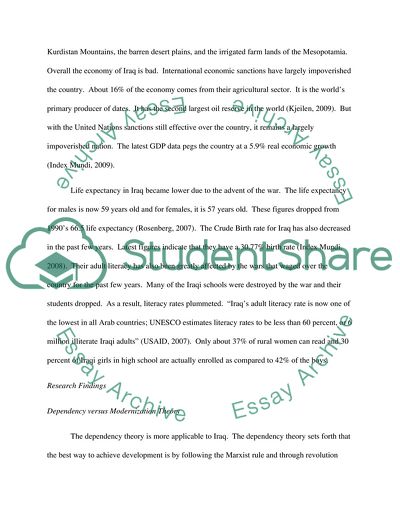Cite this document
(“Iraq Essay Example | Topics and Well Written Essays - 3250 words”, n.d.)
Retrieved from https://studentshare.org/miscellaneous/1555289-iraq
Retrieved from https://studentshare.org/miscellaneous/1555289-iraq
(Iraq Essay Example | Topics and Well Written Essays - 3250 Words)
https://studentshare.org/miscellaneous/1555289-iraq.
https://studentshare.org/miscellaneous/1555289-iraq.
“Iraq Essay Example | Topics and Well Written Essays - 3250 Words”, n.d. https://studentshare.org/miscellaneous/1555289-iraq.


